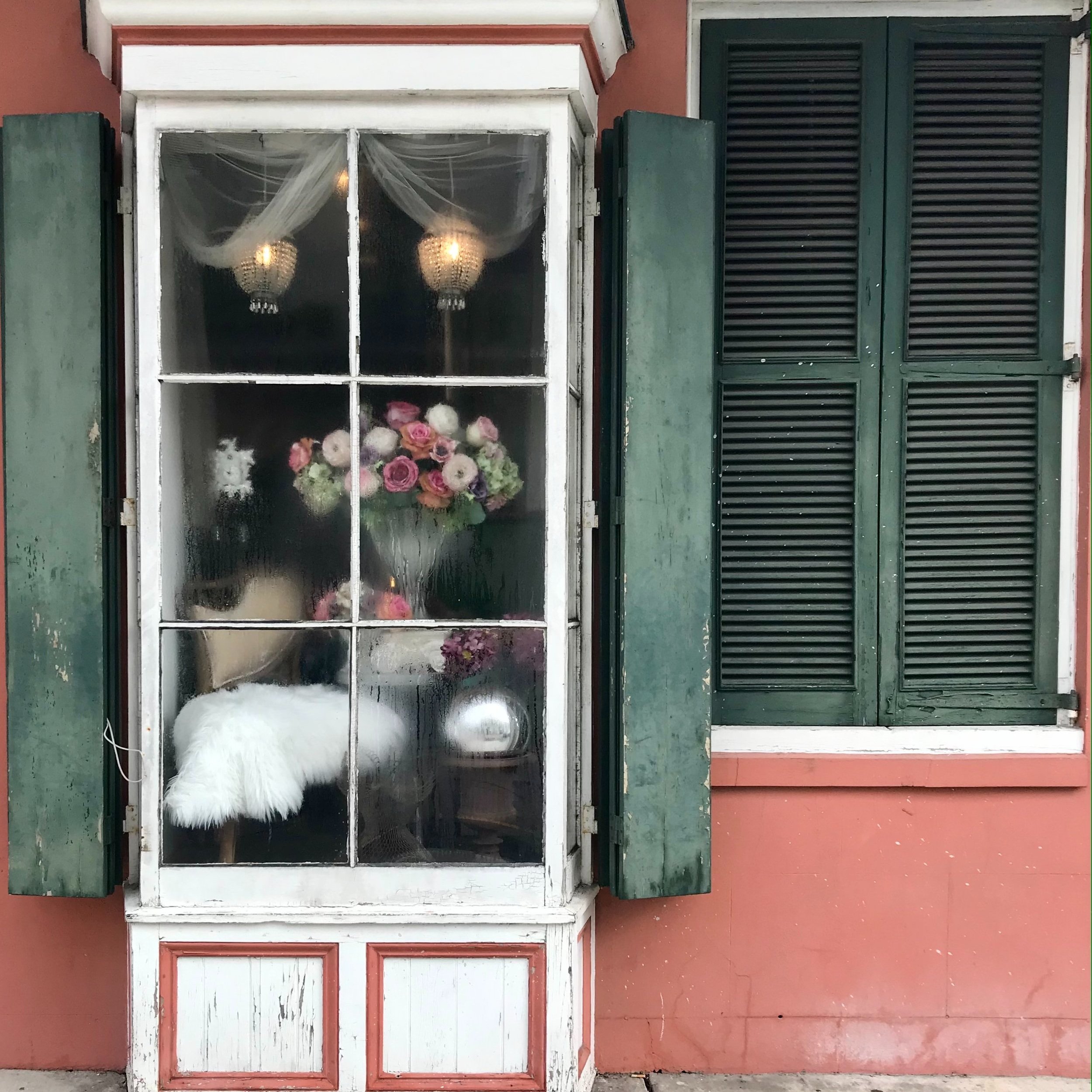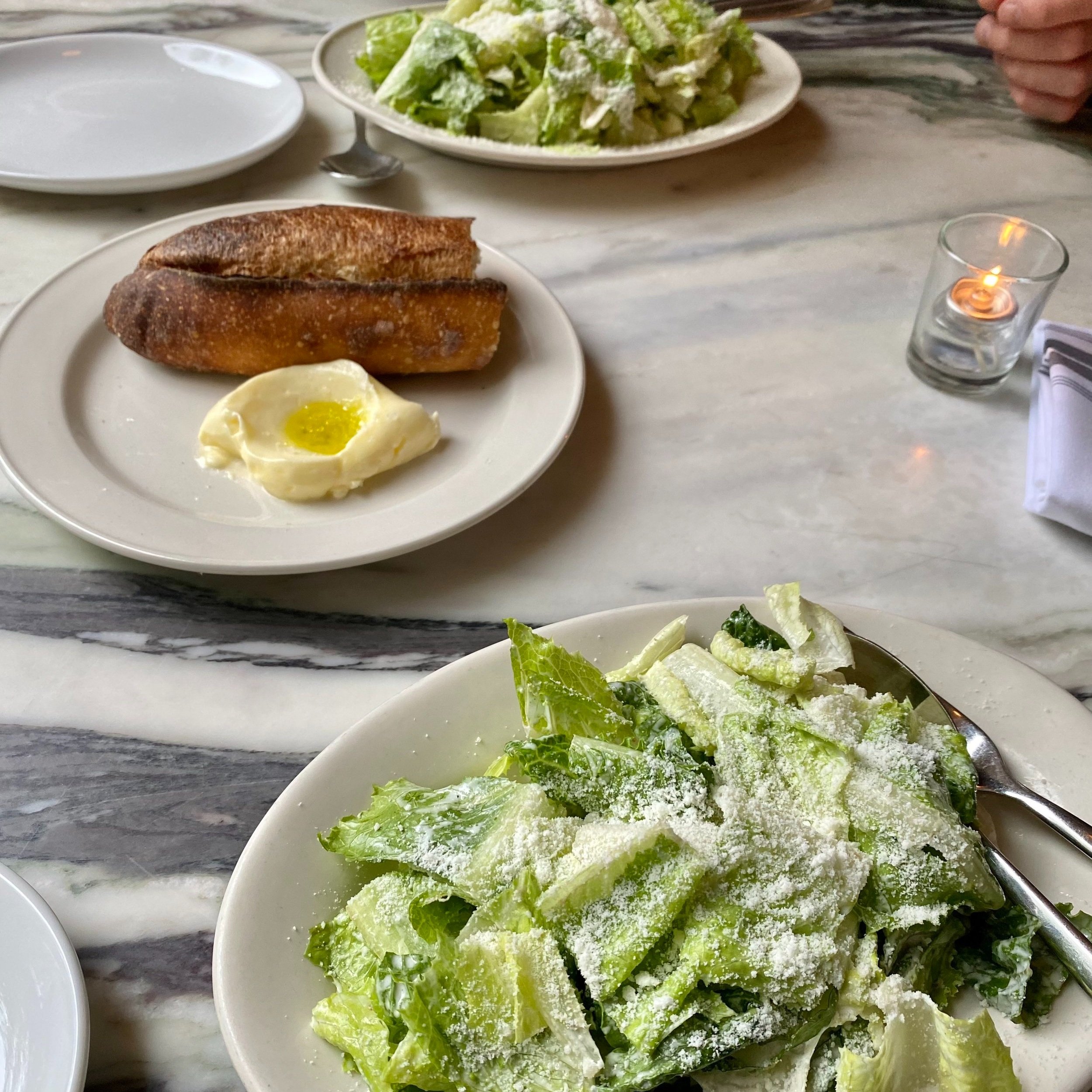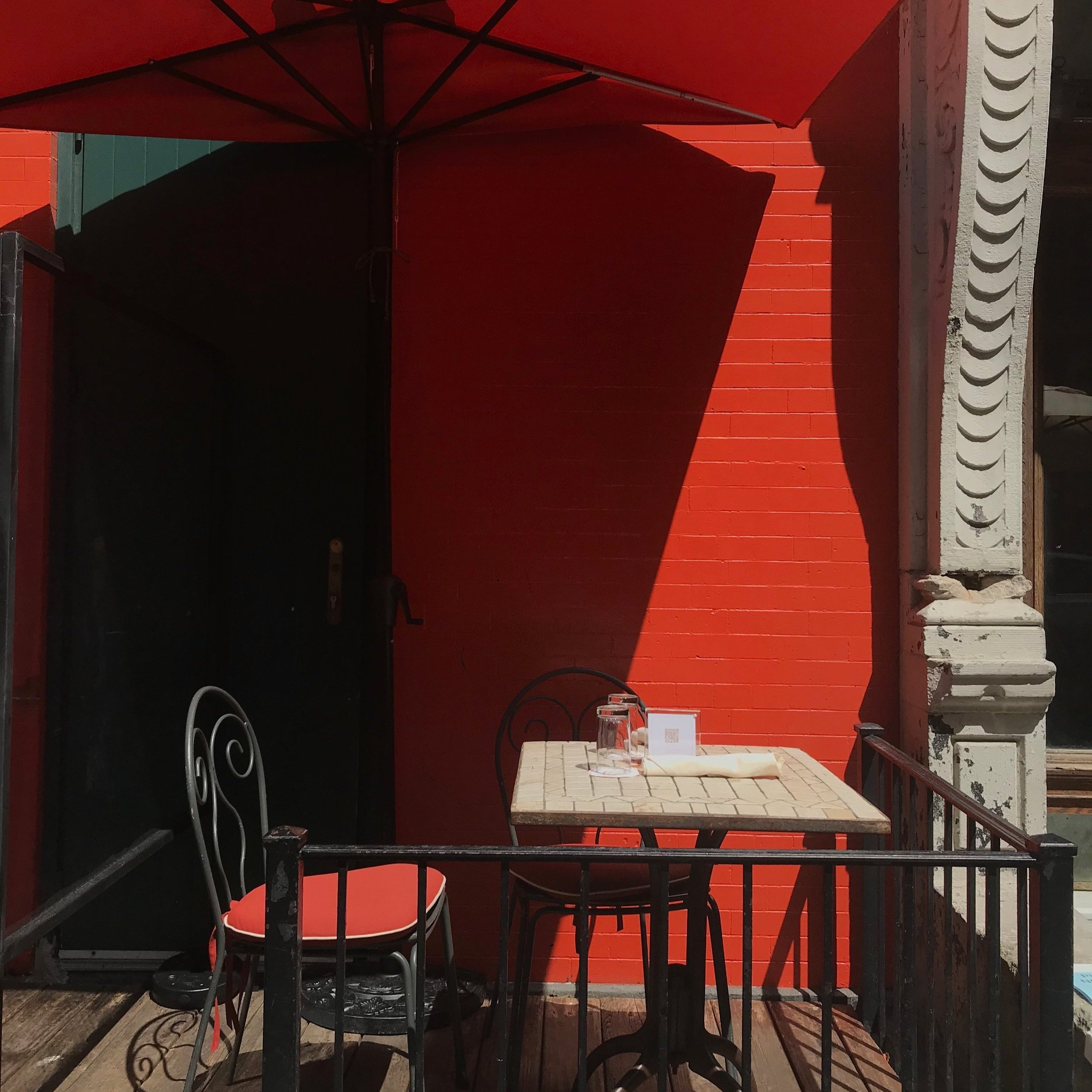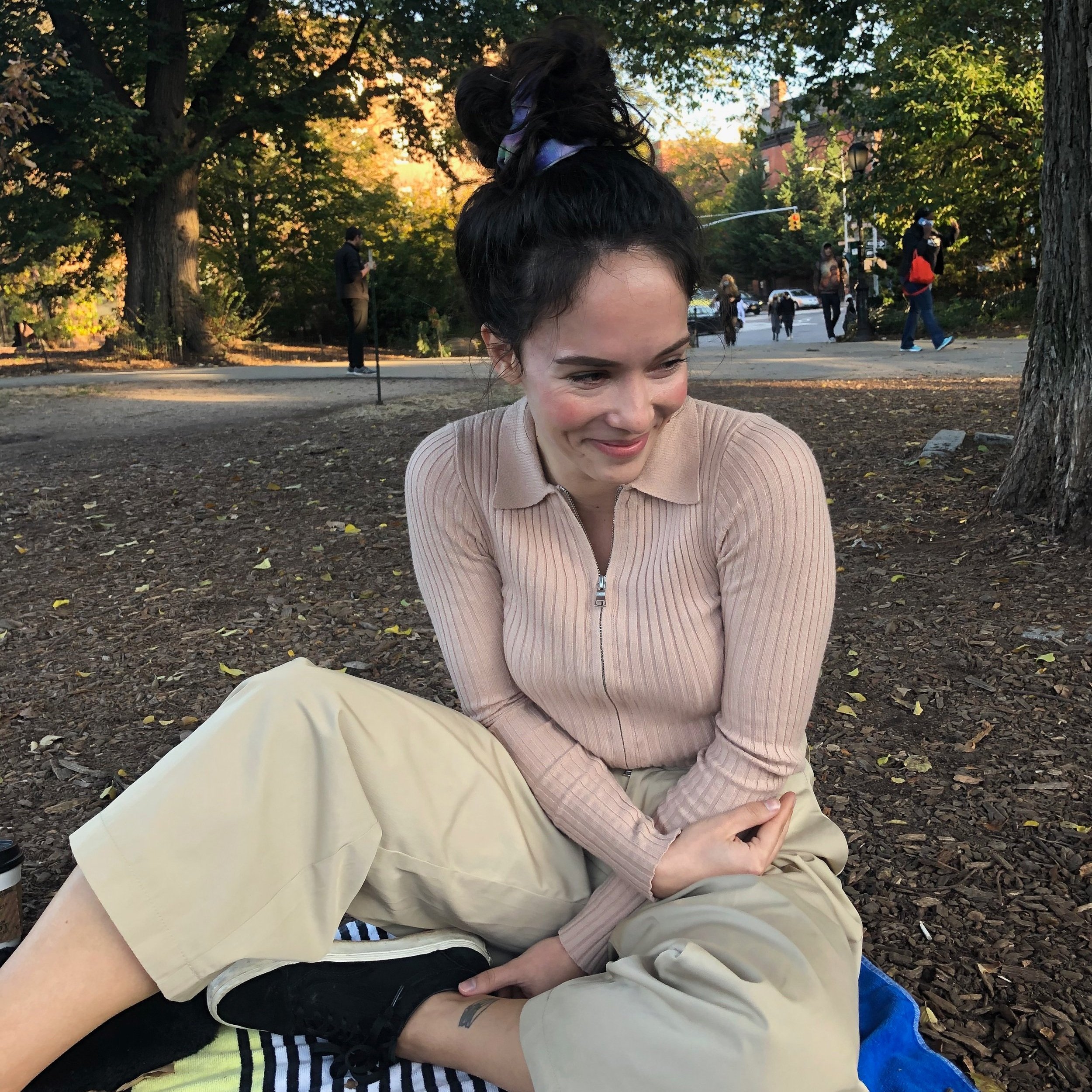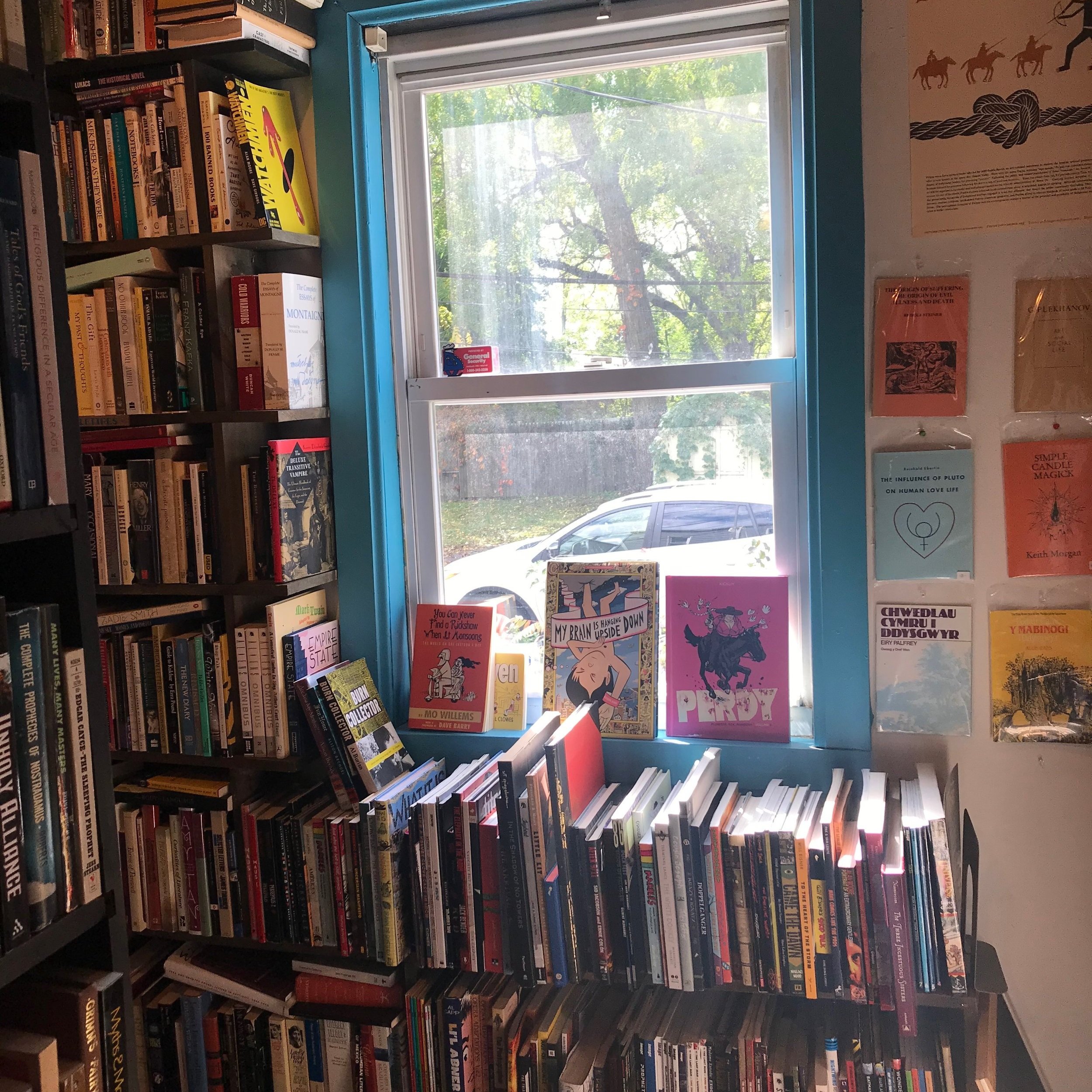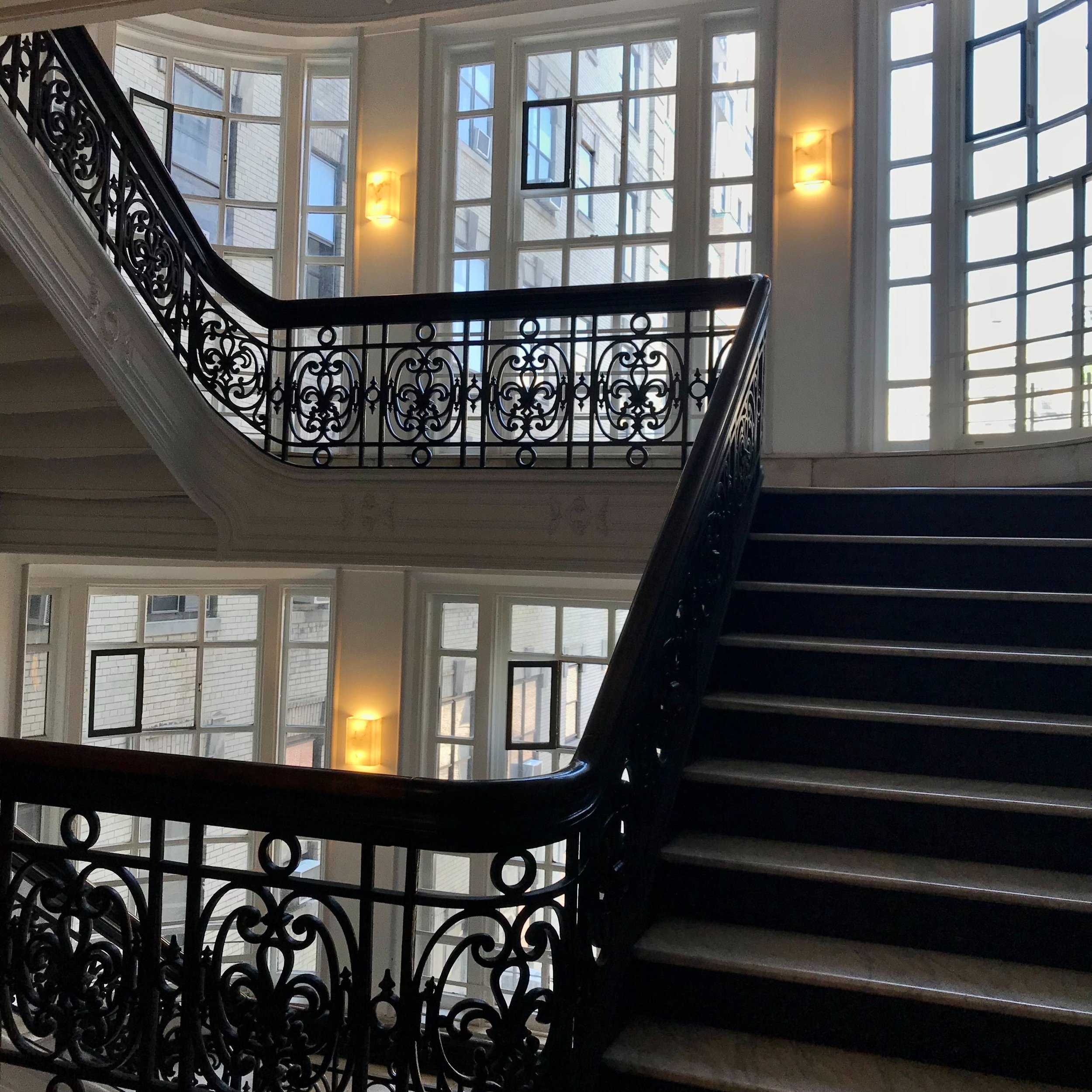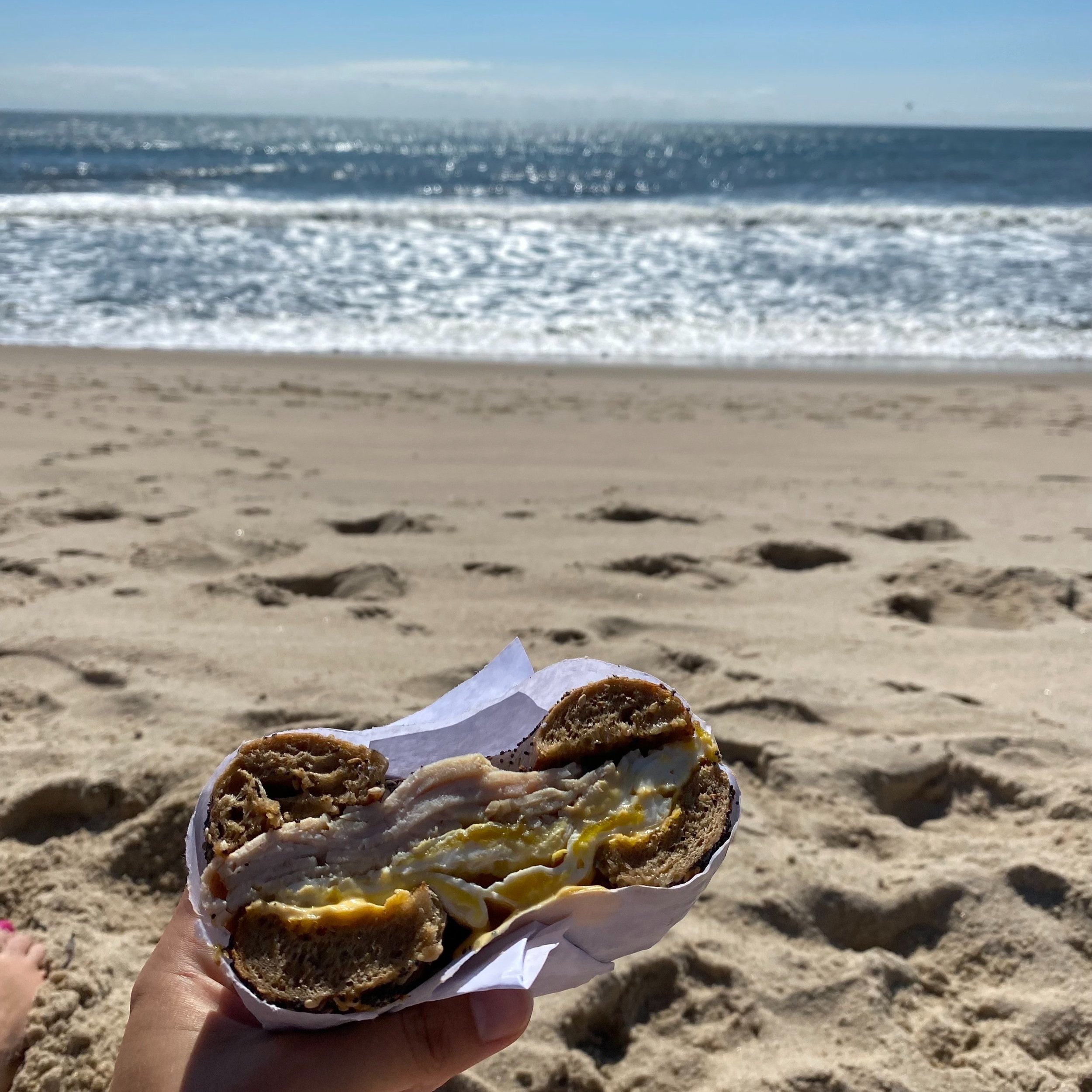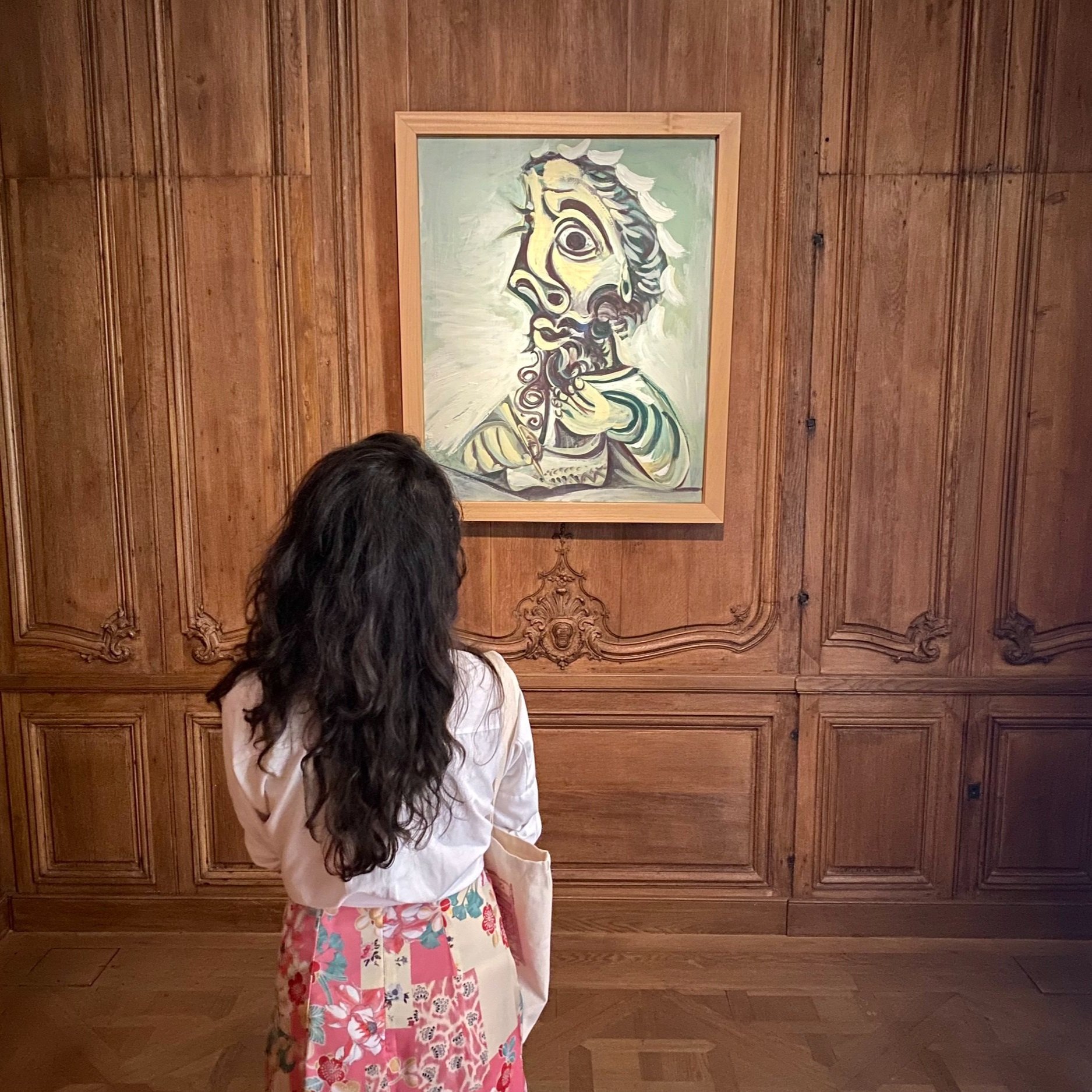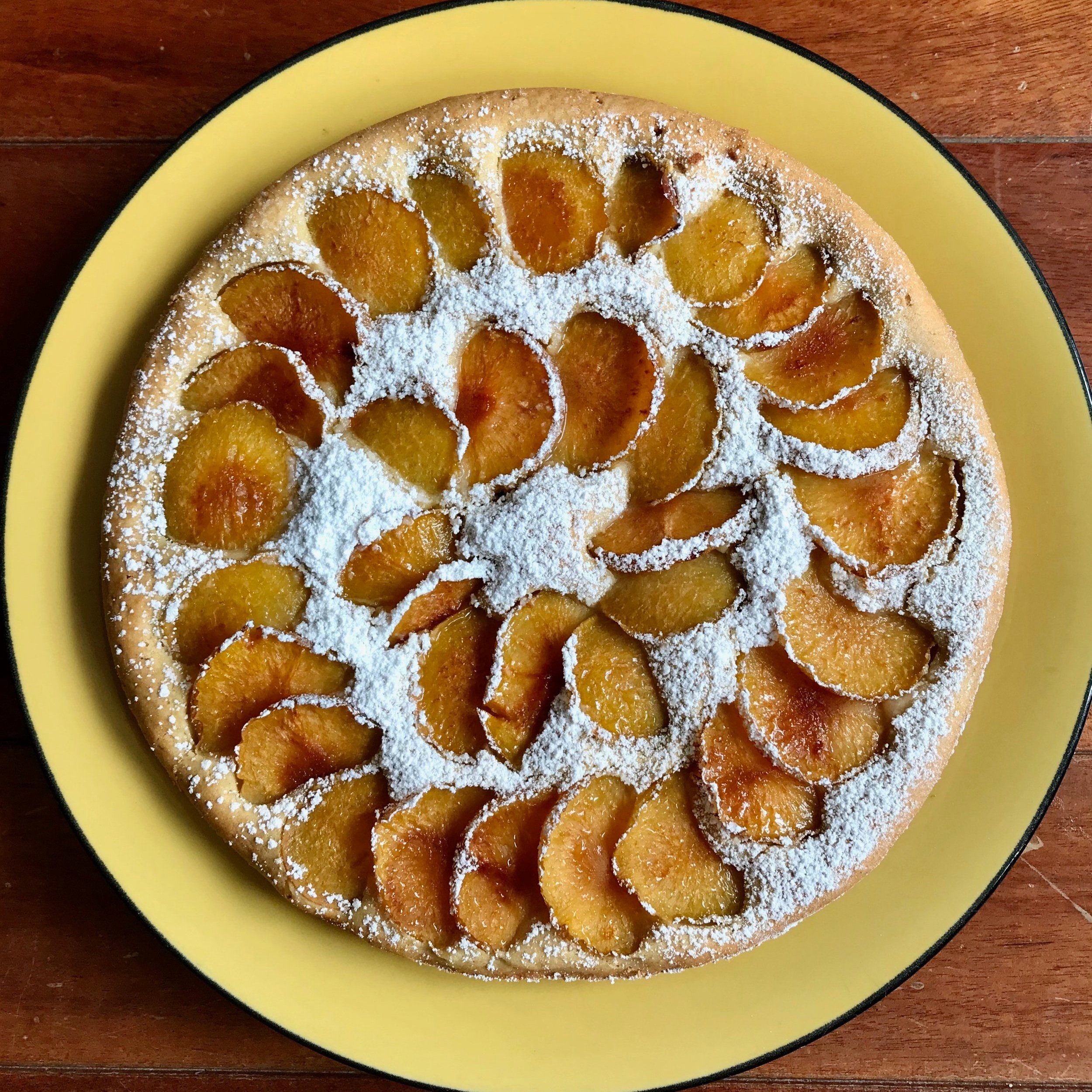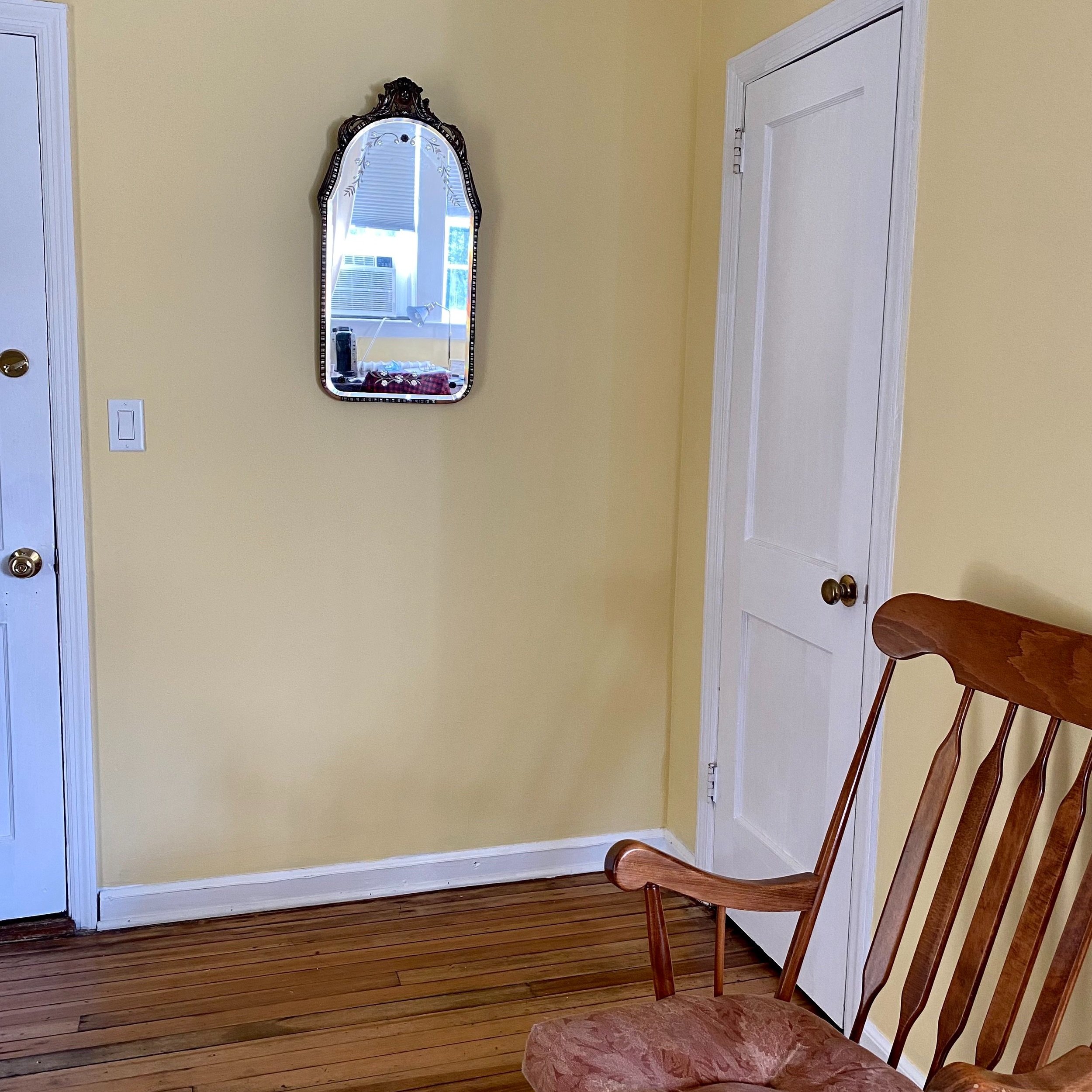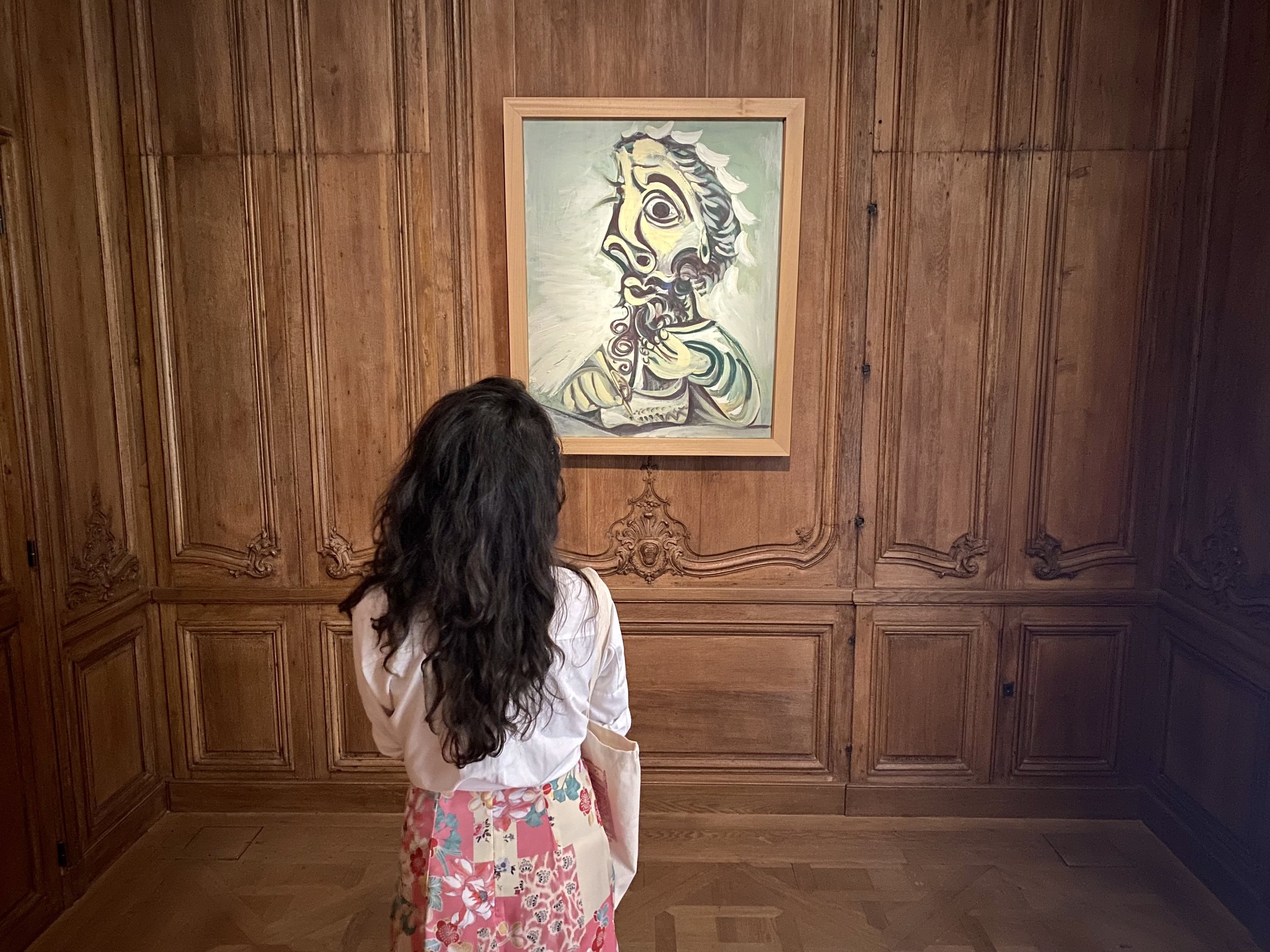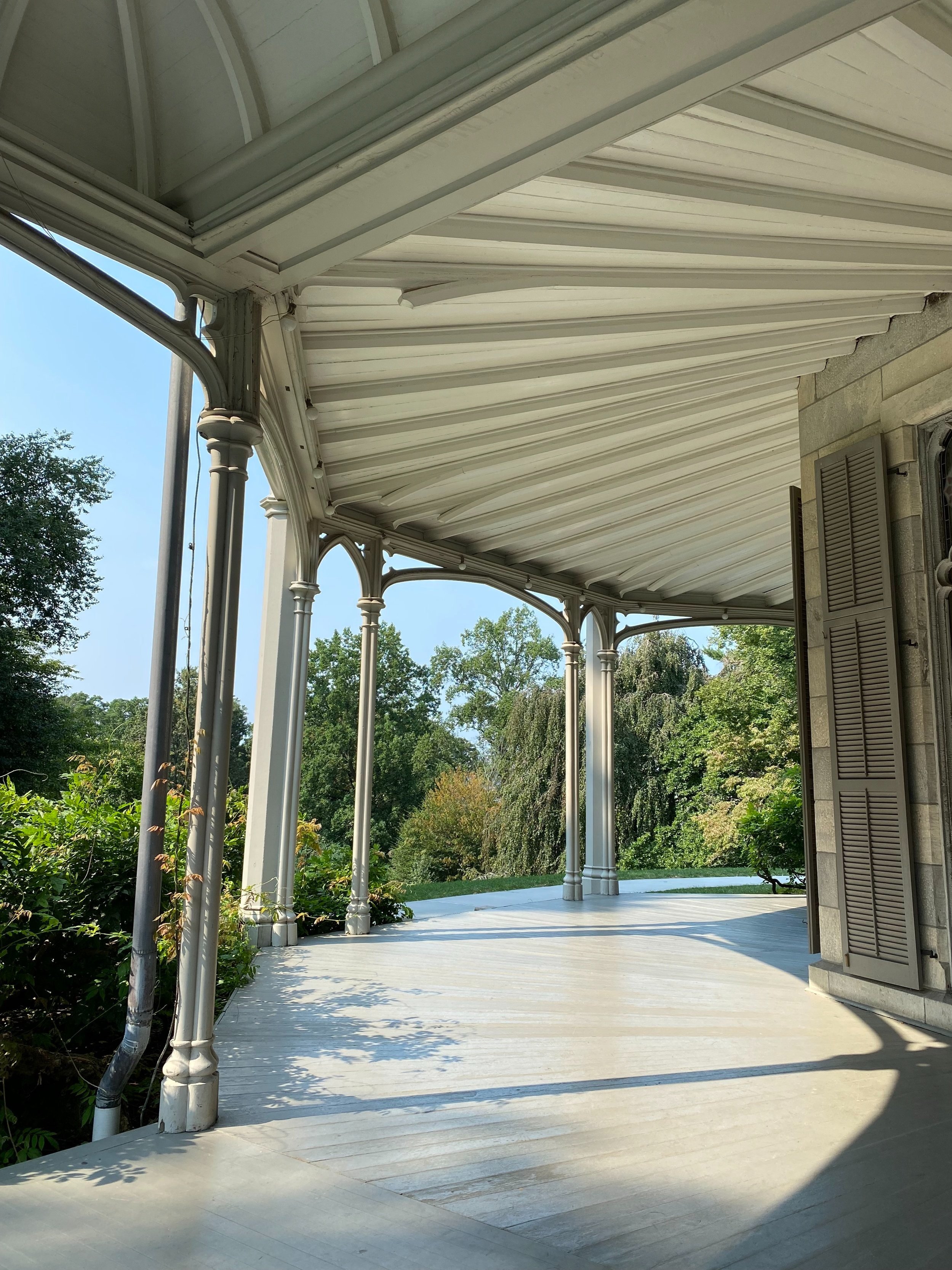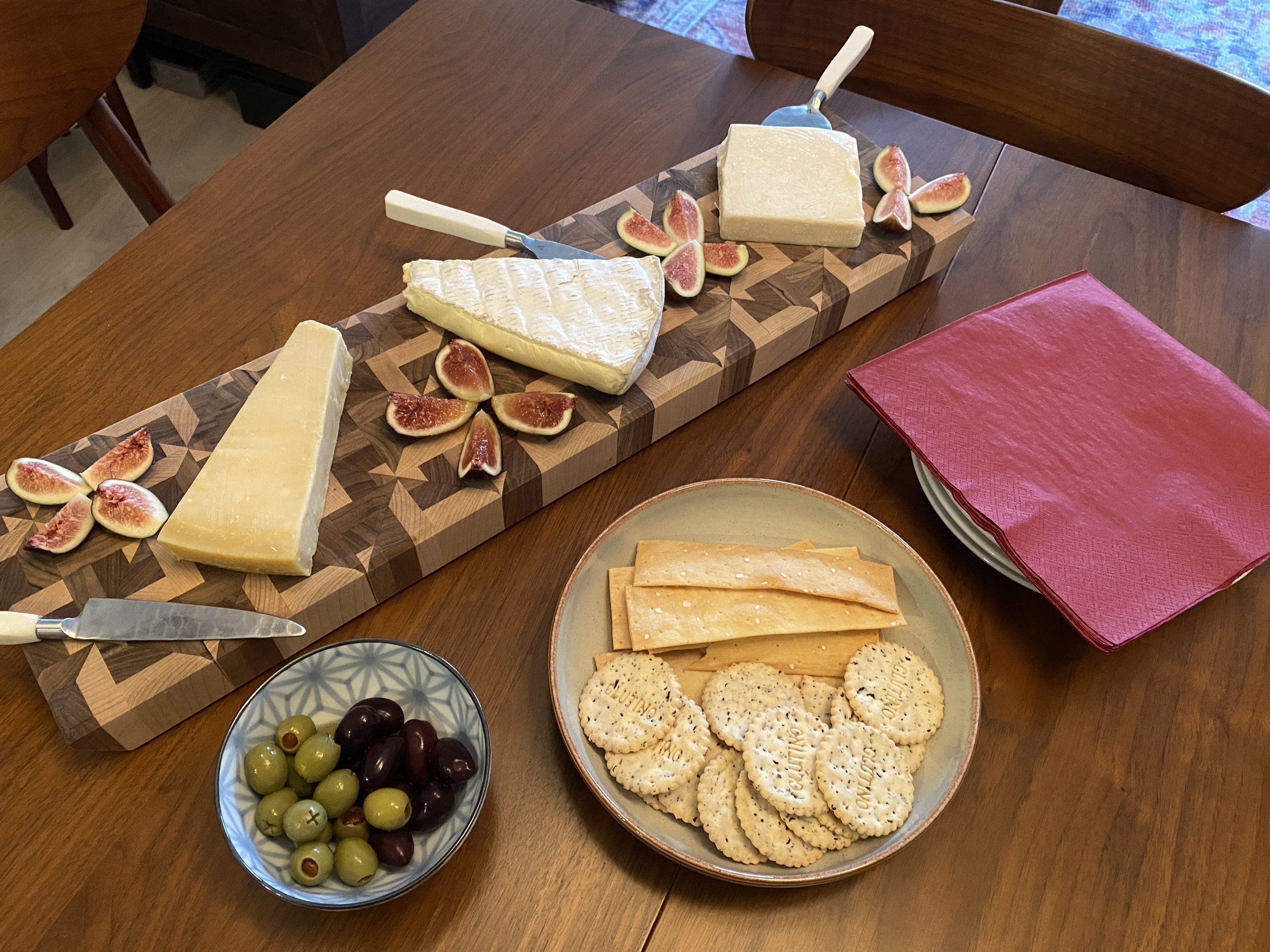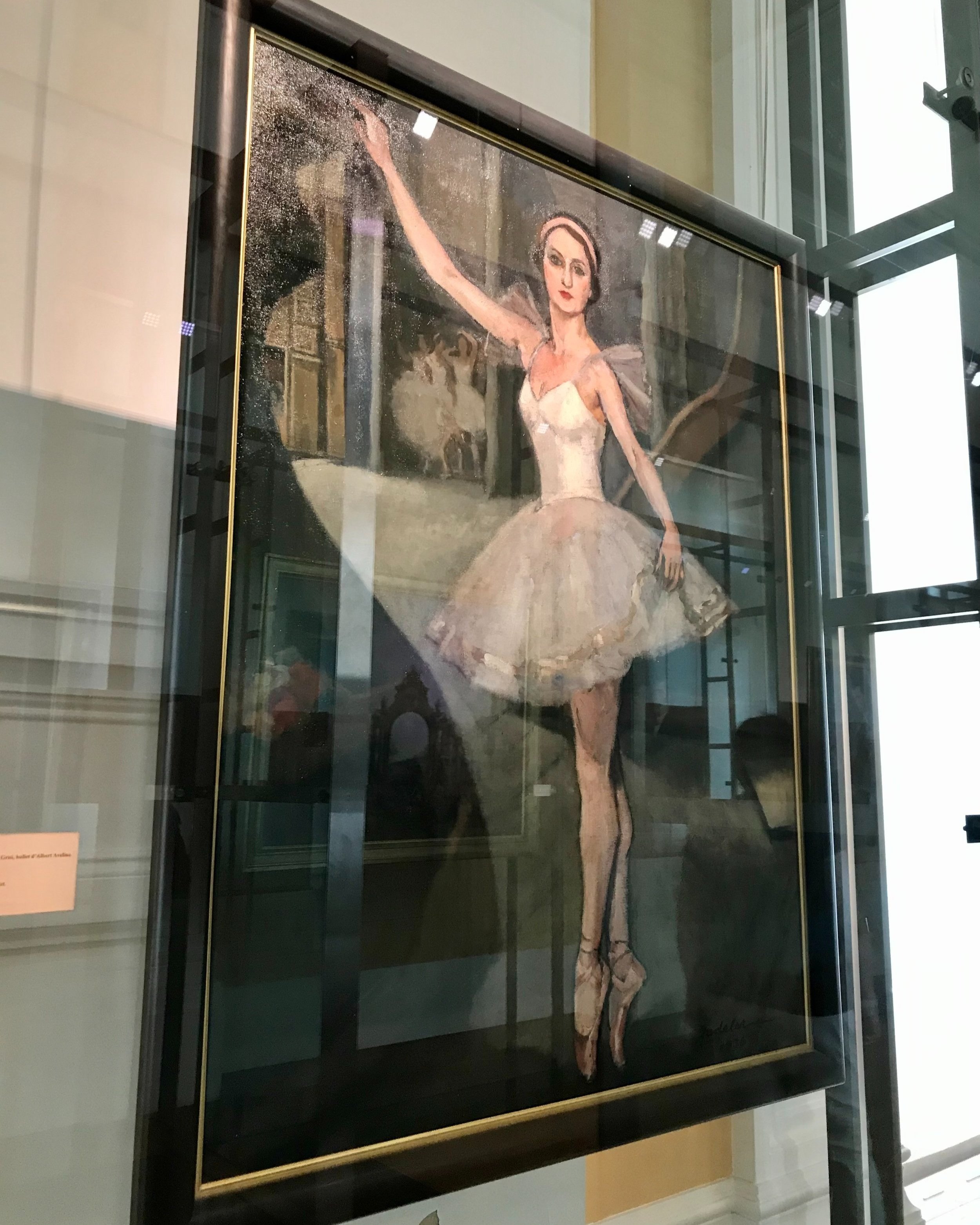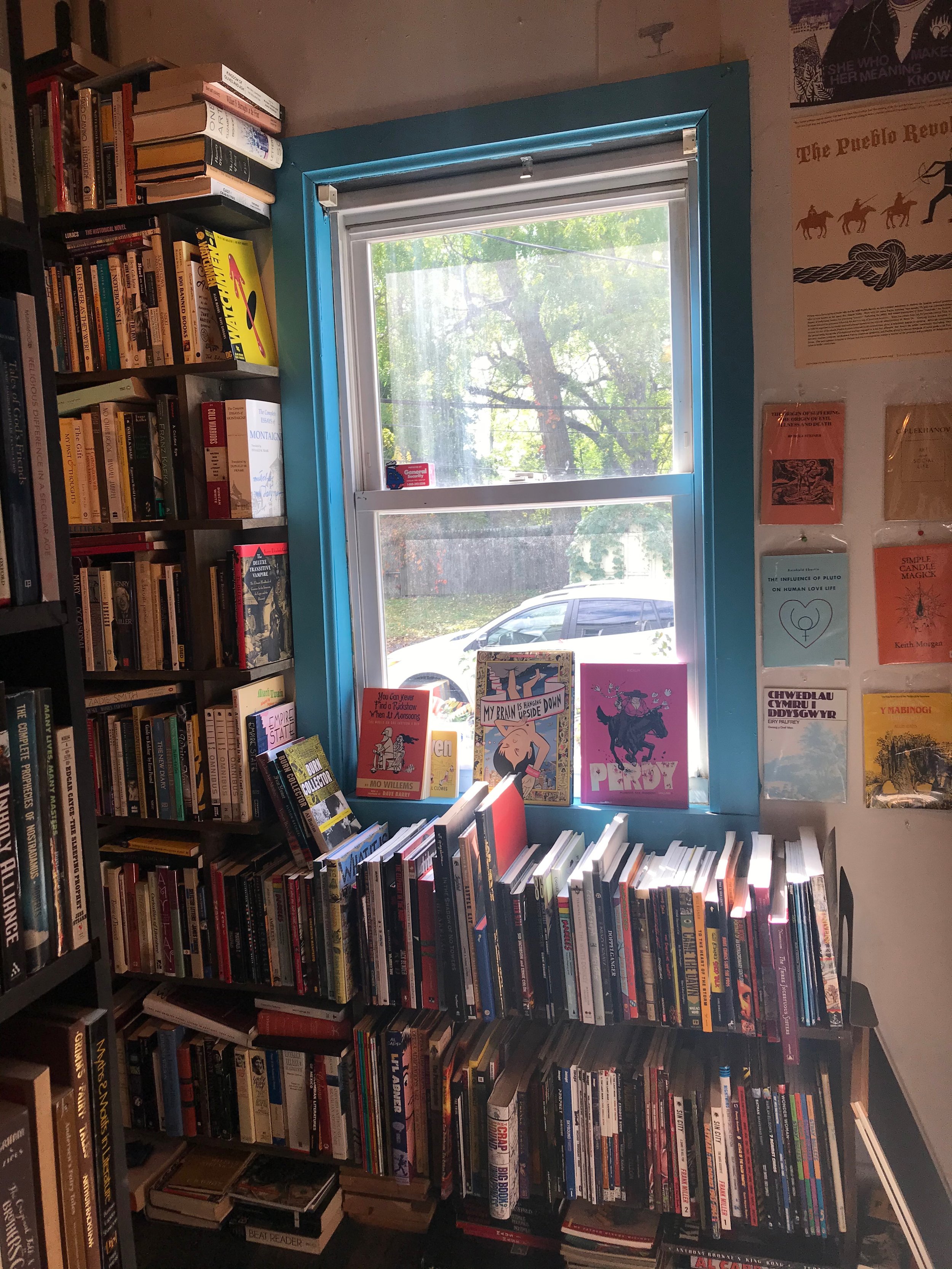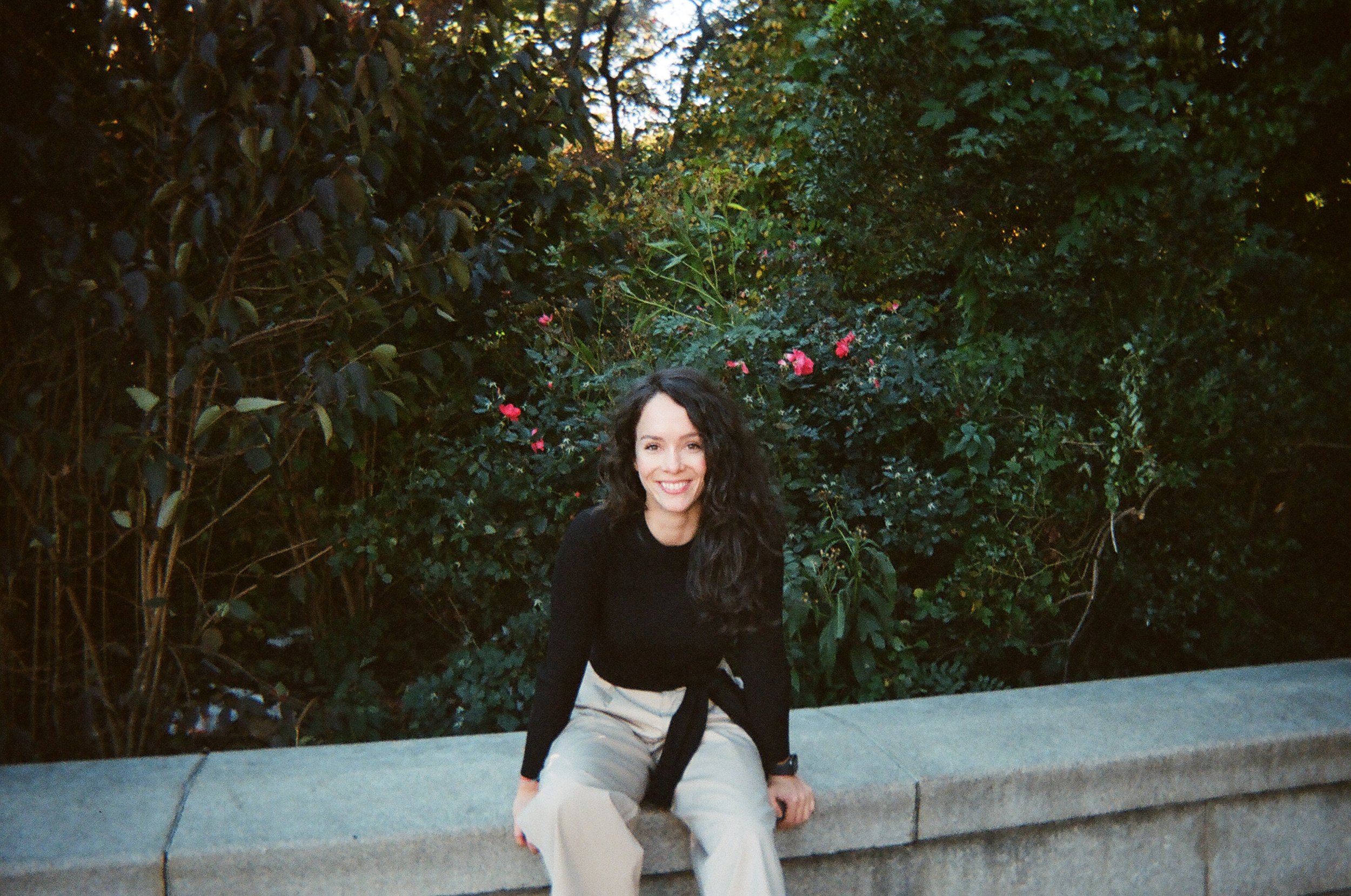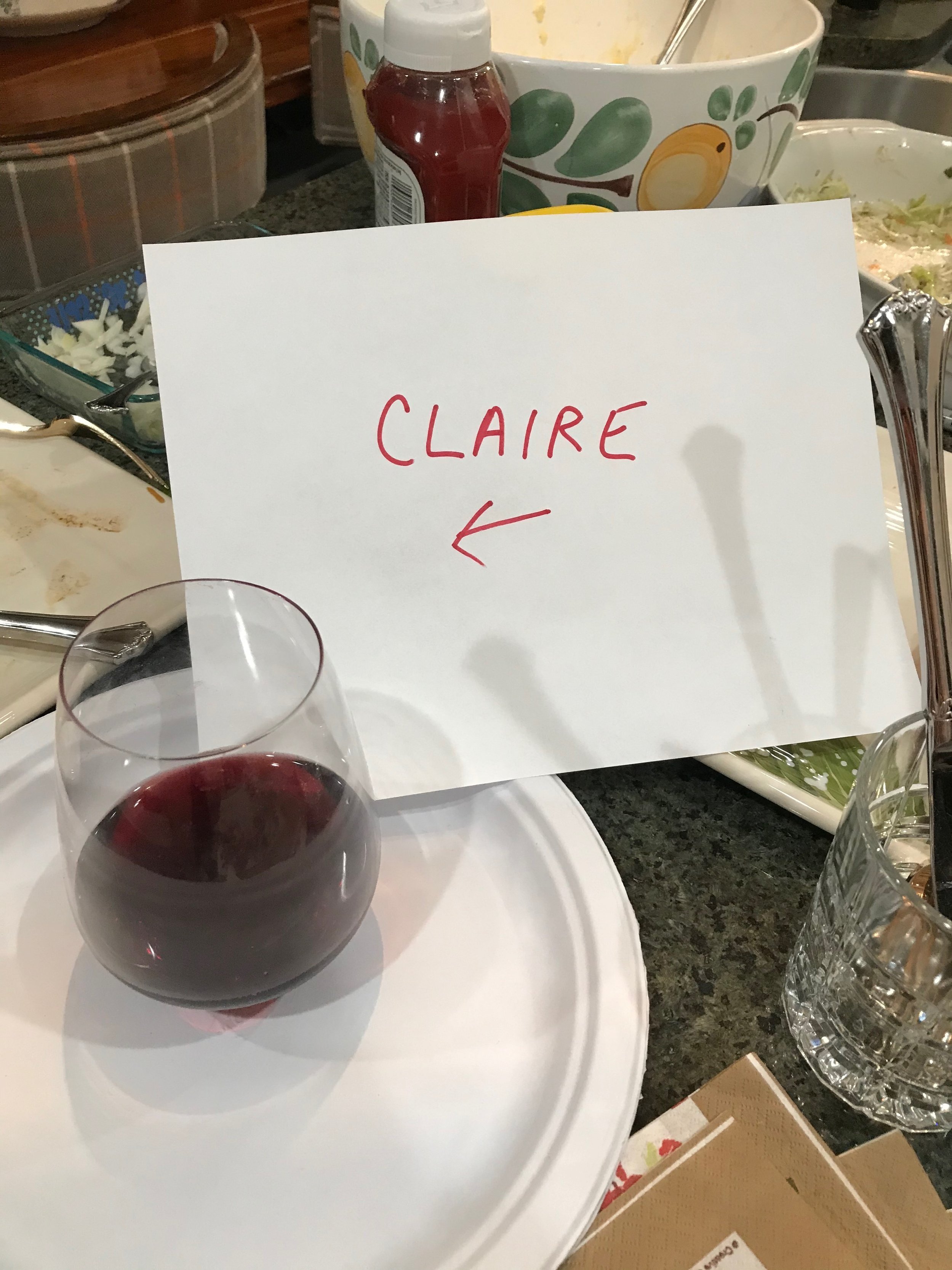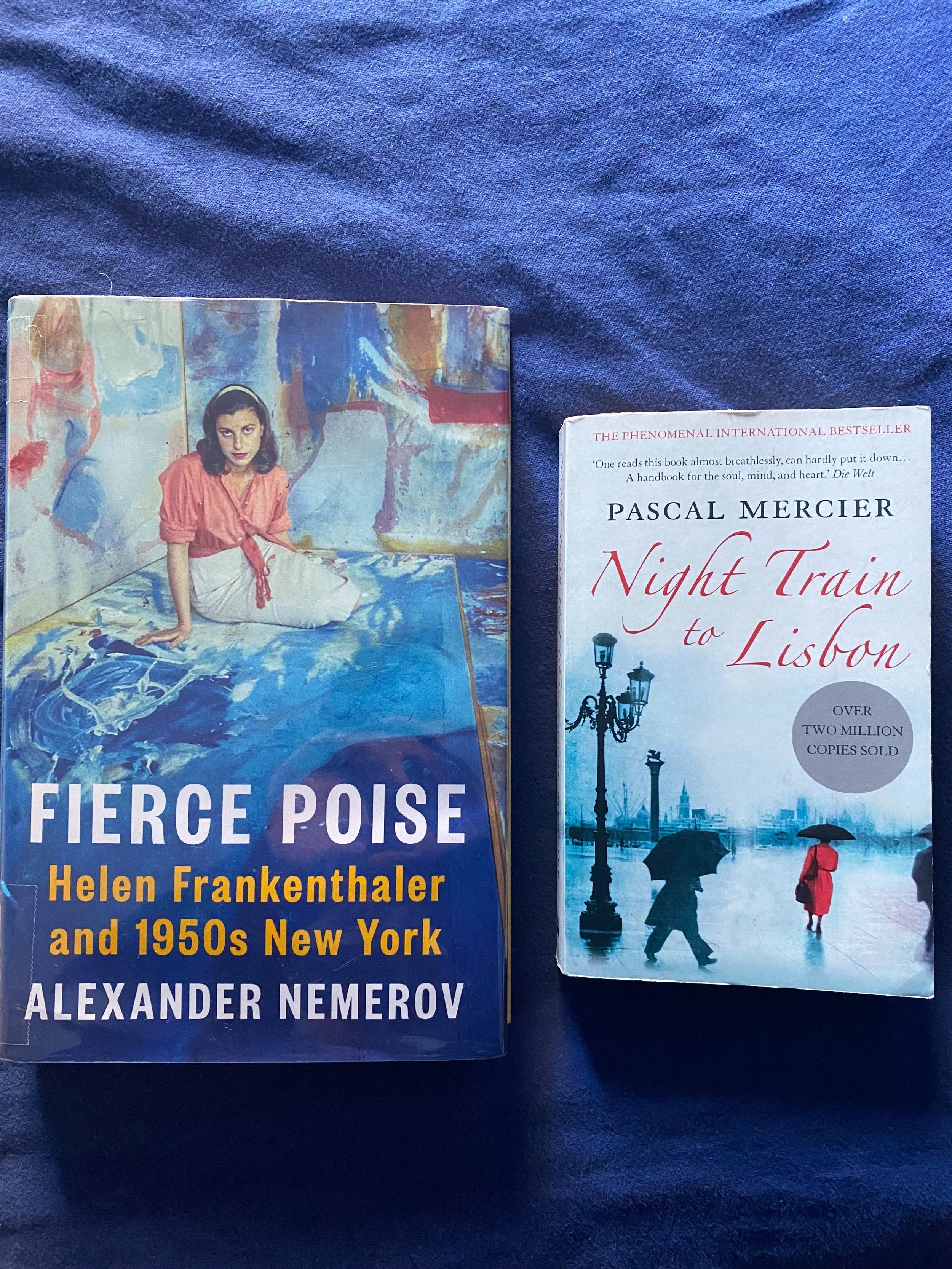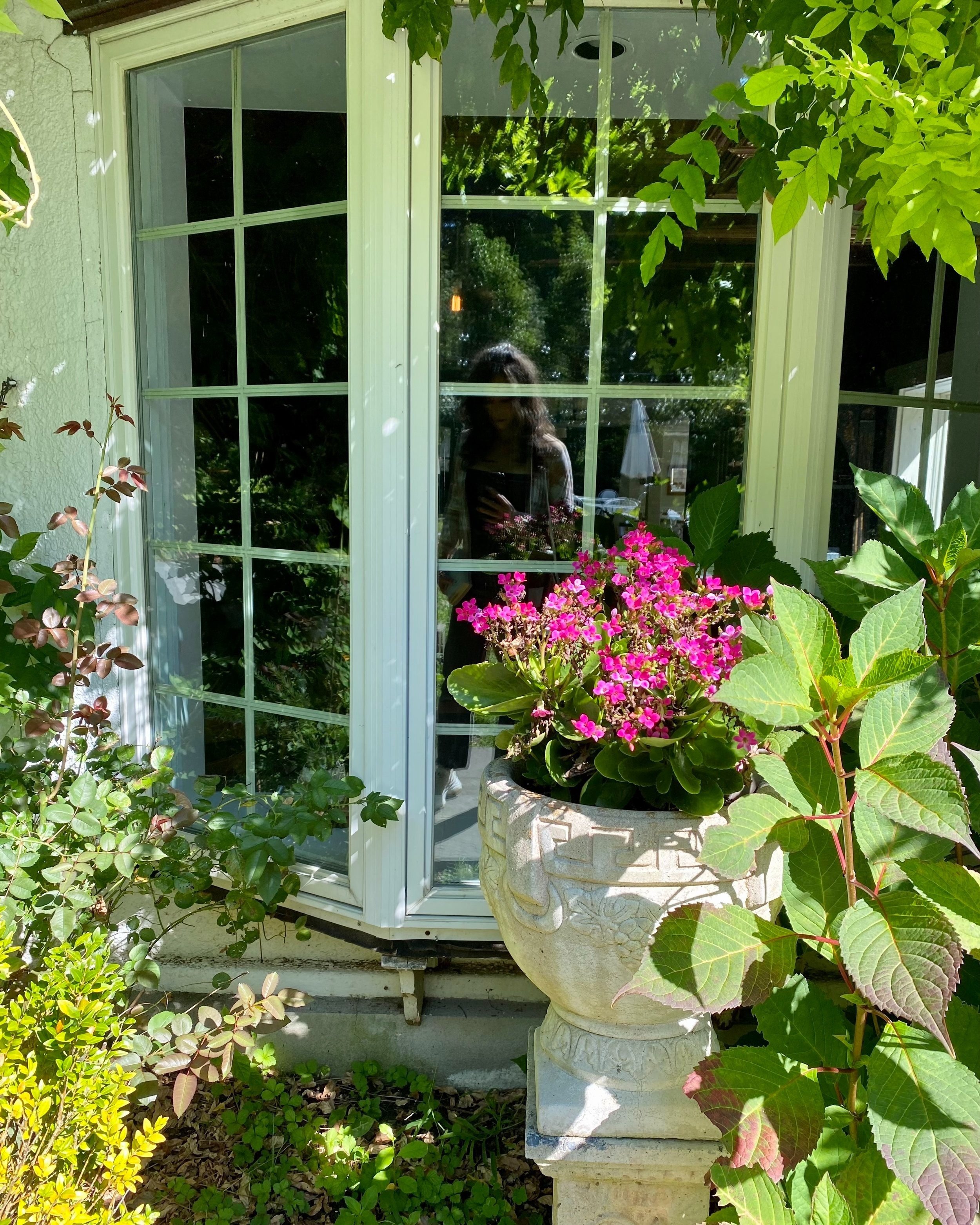Camera Roll with Claire Brodka
Camera roll is an interview series where we glimpse into the current moment via the mundane and the ordinary; the life lived in this moment of a global pandemic.
German-born publicist Claire Brodka made her way to NYC to work with the iconic art book publisher, TASCHEN. The roster of people she’s collaborated with over the years, too, rank amongst the art world’s finest: be it Patti Smith, Ai Weiwei, or Rem Koolhaas, or institutions like Dover Street Market, the Guggenheim, and Sotheby’s. Now, she’s kindling her curiosity to forge a path freelancing, and on the side, putting her energy into helping you fall asleep with a new narrative podcast.
Where are you right now?
In an apartment in Brooklyn, New York. It’s filled with plants and books.
What’s your morning routine?
I like to get up early. Pre-pandemic, I would usually set an alarm for 6am, get out of bed half an hour later, and make coffee while calling my mum back home. Then I’d try to squeeze in a quick round of yoga or simple stretching, and wash my face with super cold water (the only sure-fire way to get my mind working). Now, that routine is basically the same, except the alarm is more likely to go off at 8am...
Tell us a little bit about your background and journey.
I grew up in Germany as a triplet. We’re all girls but are each very different in character. I was the only one who had a real urge to live abroad, so I basically moved out when I went to a UK boarding school at age 14 and haven’t properly lived at home since. After high school graduation, I bounced around Europe, went to college in Munich, and then grad school in Edinburgh. That urge for a new environment every couple of years stuck with me and ultimately led me to New York. I’ve always loved the freedom and possibility of being surrounded by strangers in a big city like this.
how do you navigate your identity and what does your heritage mean to you?
I’ve started investigating the Iranian side of my identity a lot more as I’ve grown older. My dad never met his father, who came to Germany from Tehran in the late 50s/early 60s. We know that he then moved to the US to start a business. We have tried to track our relatives down a few times without much success. I think that when you’re very young, you don’t actively reflect on your heritage as much, but being in the US, in particular, has made me ask a lot more questions since everyone here is so aware of their lineage.
One of my oldest friends is a quarter Iranian like me, but he had a much stronger cultural reference point growing up because his grandfather was present and close to him. My boyfriend is Iranian-American, too, so in a way, I am catching up now and learning about a culture that could have been mine to a much stronger extent. Sometimes I feel sad that I missed out on the opportunity to really get to know it growing up, even though I absolutely loved my childhood in the German countryside.
How did you get into the publishing and publicity worlds?
I studied English Literature and Communications in undergrad, so a path in publishing was almost pre-defined. I always imagined myself firmly positioned on the editorial end, but I got into publicity through an internship and fell in love with the work. These days, I get to do a bit of both. It was also a welcome challenge switching from agency work to an in-house role when I moved to the US. I was able to start giving a lot more attention to individual projects and began working with some incredible talent across visual art, entertainment, music, photography, and architecture.
what do your days look like?
They usually consist of at least one walk in the park in between work, as well as a lot of reading time, cooking, and relaxing with my boyfriend and friends. I also oddly love cleaning! So there is quite a lot of that. A few times a week, I like to go out to explore all of my amazing neighborhood restaurants and coffee shops.
is there an experience you’ve had in your career that you’re most proud and excited about?
One of the most surreal and rewarding projects so far was working on a book with French painter Françoise Gilot, who is most known for being in a long-term relationship and having two children with Pablo Picasso (who was 40 years her senior). She is also an incredible artist in her own right and, famously, the only woman to ever leave Picasso.
I was lucky enough to be involved in launching a collection of her travel sketchbooks (ones she drew on journeys with her husband Jonas Salk, the man responsible for the Polio vaccine!) shortly after I came to New York. I remember sitting on the stairs in her UWS living room and listening to her being interviewed about the friendships she had with all these incredibly famous artists that I had studied during my Modernism Master’s at grad school. It was an out-of-body experience I’ll never forget. Françoise turns 100 this November and is as feisty as ever. She has an incredible sense of humor and what she rightly calls ‘the memory of an elephant.’
how have your views on your industry changed over time?
When I started working in New York, the whole concept of ‘PR girls’ really shocked me. Particularly, women working in-house in the industry were seen as the superficial bunch that would go out to dinners and parties for a living. I hadn’t really experienced that while working at an agency in Europe, especially one with many men AND women, all working there because we were in the same boat and respected the job. When you’re on the corporate side, there’s a level of judgment from people who don’t understand how much thought, time, dedication, and research goes into maintaining a high level of quality with the work, which made me disillusioned and angry. But I ended up taking it as an opportunity to educate colleagues and contacts about my role and how it impacts company performance as a whole.
In a more overarching sense, I think a lot of people underestimate the power of really talented communicators who take their part in shaping the media landscape seriously and use that power for good. There are so many incredible publicists out there who take on clients out of a genuine belief in what they do and a sense of importance in the message they can help spread through them. In turn, the industry landscape has turned a lot more political and conscious these days—as it should.
what excites you most about the publishing and publicity worlds, and what do you most wish you could help change?
There is a lot of movement to represent more young people and members of the BIPOC and LGBTQ+ communities in both industries, which is long overdue and very exciting to me. I am probably most frustrated by the amount of time it takes for some companies and institutions to think critically about reevaluating decades-old ‘standards’ because of a sense of prestige or status. I’d like to help speed up that process.
any advice for those with aspirations to get into your line of work?
Read a lot and broadly across all types of media. Talk to people already in the field to find out if it’s a good fit for you. Then be prepared to work hard, read even more, and never underestimate the power of thorough research.
are there any places or organizations you're supporting or wish you could support?
Girls Write Now, Save the Children, Instituto Terra, and the World Land Trust.
What did you do during quarantine that you hadn't before?
Seriously got into podcasts. Some of my favorites are The New Yorker Radio Hour, Literature and History, and Fresh Air with Terry Gross. I recommended the episode with choreographer Twyla Tharp to absolutely everyone after it aired. The back-and-forth between Terry and Twyla is hilarious and inspiring in equal measure. The impact Twyla had and still has on contemporary American dance is unparalleled, and she did a lot of her work in the early 70s with a baby crawling right next to her on the studio floor.
How has this time changed your relationship with travel and movement??
Because of Covid restrictions, I wasn’t able to travel to Germany and see my family for almost two years. That was incredibly hard and has made me appreciate the luxury of travel even more.
how do you keep active?
Yoga and going for long walks in the park.
what’s been inspiring you?
My friends and family. The unpredictable nature of this pandemic has unearthed so many hidden sides of the people that I love most—all of them inspiring in their own way. It’s been a precious thing to rediscover these relationships, and I feel very lucky to be able to live life alongside some amazing humans.
What are your skincare and healthcare routines?
I have rosacea, so my skin is crazy sensitive to all kinds of stuff. That’s why my routine is pretty pared down. In the morning, I wash my face with cold water and put on an azelaic acid gel that my dermatologist prescribed (but The Ordinary makes a great, slightly weaker over the counter version), Vanicream moisturizer, and Neutrogena’s SPF 60. At night, I use Vanicream cleanser and Eva Naturals Vitamin C Serum. It’s an Amazon buy, but insanely good! Then moisturizer again and lots of sleep. I always try to drink more water than the day before and usually fail.
What are you listening to?
Bossa Nova playlists on Spotify and a whole bunch of albums with only acoustic covers (my sister loves them). Also, The Tallest Man on Earth and Meryl. I dare you to try and get “Coucou” out of your head.
What are you reading?
Alternating between Night Train to Lisbon by Pascal Mercier and Fierce Poise: Helen Frankenthaler and 1950s New York by Alexander Nemerov.
What are you watching?
Squid Game to see if it holds up to the hype, and Bachelor in Paradise on my laptop with headphones as a guilty pleasure.
what are you eating?
I could live on potato chips and berries. And I’m obsessed with cooking my way through Melissa Clark’s NYT recipes.
what are you drinking?
Counter Culture’s Apollo coffee blend. And—as I mentioned—not enough water.
Favorite things you’ve bought in the past year?
I love this really fluffy Uniqlo jacket I got in preparation for the winter. And I swear by Deva Curl’s Plumping Primer. But honestly? Plane tickets home.
images provided by claire brodka, interview by marina sulmona

